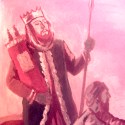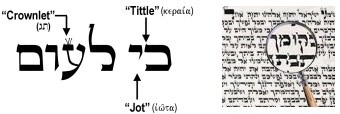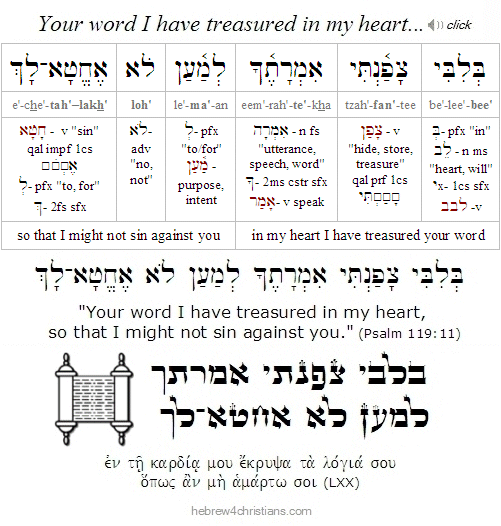|
|
|||||||||||||||||||||
 |
|||||||||||||||||||||
 |
|||||||||||||||||||||
|
|
||||||||||||||||||||||||||||||||||
|
Parashat Shoftim is always read at the start of the Season of Teshuvah. It's my hope that this article will encourage you to "return to the LORD and listen to His Voice" (Deut. 30:2). |
|
From our Torah this week (Shoftim) we read: "And he shall write for himself a copy of the Torah (i.e., mishneh ha'torah: מִשְׁנֵה הַתּוֹרָה) ... and it shall be with him, and he shall read in it all the days of his life so that he may learn to fear the LORD his God by keeping all the words of the Torah" (Deut. 17:18-19). The Jewish king was required to carry his sefer Torah (Torah scroll) with him at all times (Sanhedrin 21b). When King David said, "I have set the Lord always before me; he is at my right hand" (Psalm 16:8), he was referring to Torah which he kept tied to his arm (tefillin shel yad). David literally "set" the Word of the LORD upon his right hand to help him keep focused. Likewise the Spirit of God ties Torah upon our hearts (Jer. 31:33). Studying and meditating on Torah elevates our souls and attunes us to God's Presence. As David said: "In my heart I have stored up your word so that I won't miss seeing you. Blessed are you, O LORD; teach me your decrees." בְּלִבִּי צָפַנְתִּי אִמְרָתֶךָ be·lee·bee · tza·fan'·tee · eem·rah·te'·kha "In my heart I have treasured your word Some misguided people claim that Yeshua spoke Aramaic, not Hebrew. Well, consider this. If the king of the Jews was required to "make a copy of sefer Torah" (Deut. 17:18-19), then surely Yeshua, the great King of the Jews (מלך היהודים), the true Messiah of Israel, read Hebrew and understood kotzo shel yod (קוֹצוֹ שֶׁל יוֹד) - "every jot and tittle" of its meaning (see Matt. 5:17-19). Indeed, Yeshua knew the traditional Hebrew blessings, prayers, and hymns (Matt. 26:26-30); he chanted Hebrew in synagogue (Luke 4:16), and he reasoned with the Hebrew-speaking sages in Jerusalem as a young boy (Luke 2:42-27). Surely the "King of the Jews" spoke lashon hakodesh! (more here).
|
|
Hebrew for Christians |
|||||
|
|||||


